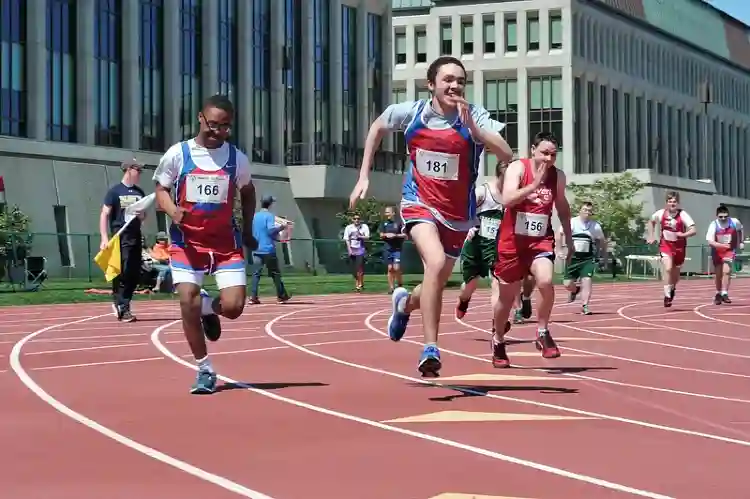Introduction
The Olympic Games, the pinnacle of athletic achievement, captivate the world every four years, showcasing the extraordinary physical feats of the planet’s most elite athletes. Behind the scenes lies a story equally as compelling but often overshadowed, the mental fortitude that propels these athletes to greatness. The ability to weather setbacks, overcome adversity, and perform under extreme pressure sets Olympic champions apart. In this deep dive, we explore the intricate web of mental toughness that shapes the mindset of these extraordinary individuals.
Defining Mental Toughness
Mental toughness is a multifaceted concept encompassing resilience, focus, determination, and the ability to thrive under pressure. It is not a one-size-fits-all trait but rather a combination of psychological skills that enable individuals to confront challenges head-on and emerge stronger on the other side. Olympic athletes, in particular, exemplify the pinnacle of mental toughness as they navigate a relentless journey filled with sacrifices, setbacks, and the weight of global expectations.
The Road to the Olympics: A Test of Resilience
For Olympic athletes, the journey to the Games is fraught with literal and metaphorical hurdles. The physical demands of training are well-documented, but the mental toll is equally significant. The daily grind, the monotony of repetitive drills, and the constant scrutiny can wear down even the most resilient spirits. Mental toughness becomes a shield against burnout, a compass guiding athletes through the ups and downs of their arduous preparation.
Consider the story of Michael Phelps, the most decorated Olympian in history. His training regimen leading up to the Olympics was notorious for its intensity, hours in the pool, grueling gym sessions, and an unwavering commitment to excellence. Phelps’ mental toughness was about enduring physical strain and navigating the psychological challenges accompanying such rigorous training.
Overcoming Adversity: The Heart of Mental Toughness
Adversity is an inevitable companion on the road to Olympic glory. Injuries, failures, and personal hardships are adversaries that test an athlete’s mental resilience. How an athlete responds to setbacks often defines their journey. The iconic gymnast Simone Biles, faced immense pressure during the Tokyo 2020 Olympics. Battling the “twisties,” a disorienting condition for gymnasts, she made the courageous decision to step back from certain competitions to prioritize her mental well-being. This bold move showcased not weakness but an unparalleled strength, a testament to the mental toughness required to put personal health above pursuing medals.
Moreover, turning failures into stepping stones is a hallmark of mental toughness. Olympians, like any other athletes, encounter defeats and disappointments. It’s in the face of these defeats that mental toughness shines. The resilience to learn from failures, adapt, and persevere transforms setbacks into opportunities for growth. The story of Usain Bolt, who finished last in his first Olympic final before becoming the fastest man on the planet, exemplifies the transformative power of mental resilience.
Performing Under the Global Spotlight
The Olympic stage is unlike any other, with the eyes of the world fixed on the athletes. The pressure to perform at the highest level, under the scrutiny of millions, is an unparalleled challenge. Mental toughness is the anchor that keeps athletes grounded amid the din of expectations. It’s the ability to stay focused, maintain composure, and deliver peak performances when it matters most.
Consider the sport of figure skating, where the margin for error is razor-thin. The mental toughness required to execute complex routines flawlessly while judges scrutinize every move is extraordinary. Yuzuru Hanyu, the Japanese figure skater, demonstrated this mental fortitude by clinching back-to-back gold medals in 2014 and 2018, navigating the intense pressure with grace and precision.
Visualization, self-talk, and mindfulness are common mental techniques athletes employ to manage the stress of competition. These strategies enhance performance and contribute to the overall mental resilience that sustains athletes through the tumultuous Olympic journey.
Mental Toughness as a Collaborative Effort
While the spotlight shines on the individual athlete, the support system behind them plays a pivotal role in fostering mental toughness. Coaches, sports psychologists, family, and teammates collectively contribute to an environment that nurtures resilience and determination.
Sports psychology has emerged as a critical component of athlete development, with professionals working closely with Olympians to build mental resilience. Techniques such as goal-setting, imagery, and stress management are integrated into training programs to equip athletes with the psychological tools needed to excel on the grandest stage.
The camaraderie among teammates also contributes significantly to mental toughness. The shared experiences of triumphs and tribulations create a bond that fosters collective resilience. For instance, the synchronized swimming duet of Bill May and Kristina Lum Underwood defied gender norms and age expectations to compete against much younger competitors. Their mental toughness was an individual attribute and a shared strength that propelled them to make history together.
Mindfulness and Mental Health’s Role in Olympic Success
There has been a rising acknowledgment of the relevance of mental health in athletics in recent years. Despite their physical brilliance, Olympic athletes are not immune to mental health issues. Athletes like Michael Phelps, Simone Biles, and Naomi Osaka’s honesty about their challenges have prompted a critical discourse about mental health in the athletic world.
Mental toughness is not synonymous with suppressing emotions or ignoring mental health concerns. Instead, it involves acknowledging and addressing these challenges head-on. The ability to seek help when needed, to prioritize mental well-being, and to break the stigma surrounding mental health issues are integral aspects of the modern Olympic athlete’s journey.
The Tokyo 2020 Olympics, postponed to 2021 due to the global pandemic, brought mental health to the forefront. The isolation, uncertainties, and stringent safety measures added an extra layer of stress for athletes. Simone Biles’ decision to withdraw from certain events due to mental health concerns sparked both criticism and widespread support, underscoring the ongoing dialogue about the mental well-being of athletes on the grandest stage.
Conclusion
The mental toughness displayed by Olympic athletes extends beyond the podium. It leaves an indelible mark on the sports landscape and inspires future generations. The stories of resilience, the triumphs over adversity, and the ability to perform under the weight of global expectations create a narrative that transcends sports.
As we celebrate the physical prowess of Olympic athletes, let us also recognize and applaud the mental fortitude that underpins their journey. The lessons drawn from the world of elite sports can be applied to our everyday lives, teaching us to face challenges with resilience, turn setbacks into opportunities, and prioritize our mental well-being on the path to our victories. The mental toughness of Olympic athletes is not just a trait reserved for the arena; it is a universal testament to the strength of the human spirit.



